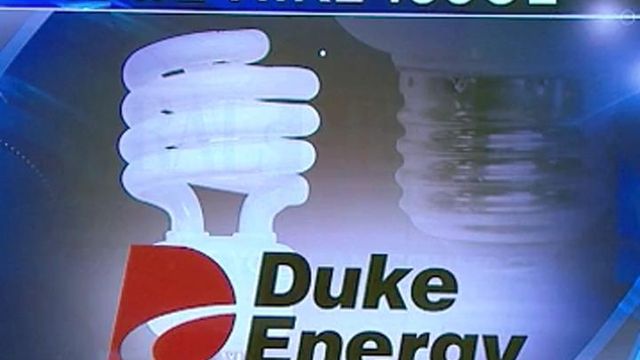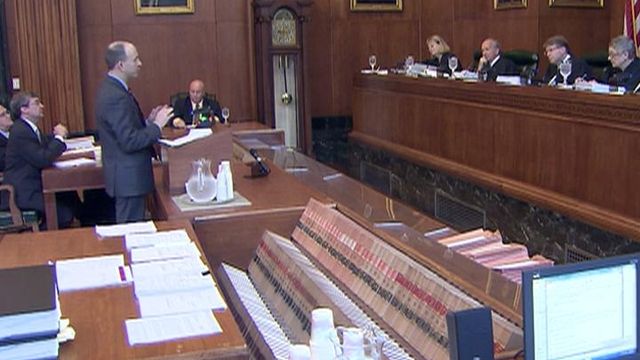Duke Energy defends rate increase in court
The N.C. Utilities Commission properly awarded Duke Energy Corp. a 7.2 percent increase on electric rates after weighing numerous factors, attorneys for the company and commission said Tuesday.
Posted — UpdatedThe state Supreme Court heard arguments to a challenge to the rate increase filed by the Consumer Protection Division of the Attorney General's Office. The state contends that the increase was exorbitant in light of the sputtering economy and the tight budgets many families face.
The Utilities Commission approved the rate increase in January for Duke's 1.8 million customers in North Carolina, despite opposition from hundreds of consumers at public hearings across the state. The increase, which took effect in February, added $7 to the average monthly residential electric bill, to a total of $103.
Kevin Anderson, chief of the Consumer Protection Division, argued that state law requires the Utilities Commission to consider the impact of any rate increase on both consumers and shareholders. The commission didn't spell out in its order granting the increase how it factored economic conditions into its decision.
Duke's lawyer Kiran Mehta countered that the law requires the commission to consider the changing economy only as it relates to shareholders, not consumers.
William Grantmyre, an attorney for the Public Staff, the state agency that represents consumers in utility cases before the commission, also told justices that Charlotte-based Duke offered several concessions in negotiating the rate increase.
"What the attorney general is doing here is seeking to attain all the benefits to residential customers of the settlement that Duke and the Public Staff entered into but to slough off any burden that's associated with that settlement," Mehta said. "They can't do that. It's a package."
Public Staff Director Robert Gruber said after the hearing that his office negotiated the best deal it could.
"The company was asking for about a 17 percent rate increase for residential customers, and we cut it down to 7.2 percent," Gruber said.
Duke spokesman Mike Hughes said the company has spent more than $4 billion on new, more efficient power plants and needs to recoup its investment. Still, he said, the company recognizes that rate increases are never popular, especially in a down economy.
"We understand that, but the true fact of the matter is we're making investments into the system to serve millions of customers every day (and) ensure that the lights come on when customers flip a switch," Hughes said.
Several economic experts who testified before the commission said Duke shareholders should get a return of 10.2 to 10.8 percent for the company's investments. Mehta said the 10.5 percent rate approved by the commission falls squarely in the middle of that range, and he argued that the commission must be granted some subjective leeway in determining what is a fair rate of return.
Anderson said those expert witnesses didn't consider North Carolina's weak economy in determining the rate of return. He also noted that a small change in that rate could have saved consumers millions of dollars.
"Blind deference is not due to the commission," he said. "Deference to the commission all hinges on whether it made proper findings and conclusions."
Duke has said that the rate increase – and a requested increase by Progress Energy – isn't related to its July takeover of Raleigh-based Progress.
The Attorney General's Office and the Utilities Commission are running separate investigations into whether Duke misled regulators ahead of the Progress acquisition. Hours after the deal was concluded, Duke's board ousted Progress Chief Executive Bill Johnson from the CEO position of the combined company.
If the high court sides with the Consumer Protection Division, the Duke rate case will go back to the Utilities Commission, which could mean rates for customers could be lowered, raised even higher or remain the same. The court is expected to issue a ruling in the next few months.
• Credits
Copyright 2024 by Capitol Broadcasting Company. All rights reserved. This material may not be published, broadcast, rewritten or redistributed.






